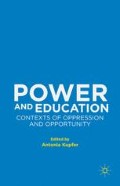Abstract
Antonio Gramsci (born in Ales, Sardinia, 1891; died in Rome, 1937) is widely regarded as one of the foremost social and political theorists of the twentieth century. Raised in Sardinia, he subsequently moved to Turin to take up a scholarship at the University of Turin. The city was a hotbed of political mobilisation and was part of the industrial heartland of the Italian North. Despite his great promise as a philologist, having been heralded by one of his teachers, Matteo Bartoli, as ‘the archangel’ set to ‘defeat the grammarians’,(Gramsci, 1973, 80),1 Gramsci never completed his studies. He dropped out of university to engage in revolutionary socialist politics being prominent in workers’ education circles and in socialist journalism, among other things. He eventually emerged as one of the most prominent figures in the radical left of the Italian Socialist Party and later the first Secretary General of the Italian Communist Party, following the split which occurred in Leghorn (Livorno) in 1921. Arrested in 1926 following the Fascist rise to power, he would spend the rest of his life in prison. According to the chief prosecutor, his brain was meant to be ‘stopped from functioning’ for 20 years (Hoare and Nowell Smith, in Gramsci, 1971, p. lxxxix) in a ruthless, clinical process publically described by Enrico Berlinguer, fellow Sardinian and successor as PCI Secretary General, as intended to ‘assassinate’ the Communist leader ‘scientifically’2.
Access this chapter
Tax calculation will be finalised at checkout
Purchases are for personal use only
Preview
Unable to display preview. Download preview PDF.
References
Allman, P. D. (1999) Revolutionary Social Transformation: Democratic Hopes, Political Possibilities and Critical Education, Westport, CT and London: Bergin and Garvey.
Allman, P. D. (2010) Critical Education against Global Capitalism, Karl Marx and Revolutionary Critical Education. Rotterdam and Taipei: Sense Publishers.
Boothman, D. (2014) ‘Una Lunga Preistoria: Adam Ferguson, L’illuminismo Scozzese e le Radici della Società Civile’ [A long prehistory. Adam Ferguson, the Scottish Enlightenment and the roots of Civil Society] in Pala, M. (ed.) Narrazioni Egemoniche. Gramsci, Letteratura e società civile (Hegemonic Narratives. Gramsci, Literature and Civil Society), Bologna: Il Mulino.
Borg, C., Buttigieg, J. and Mayo, P. (2002a) ‘Introduction: Gramsci and education, a holistic approach’, in Borg, C., Buttigieg, J. and Mayo, P. (eds) Gramsci and Education, Lanham, MD: Rowman and Littlefield, pp. 1–23.
Borg, C., and Mayo, P. (2002b) ‘Gramsci and the Unitarian School. Paradoxes and Possibiities’, in: Borg, C., Buttigieg, J. and Mayo, P. (eds) Gramsci and Education, Lanham, MD: Rowman and Littlefield, pp. 1–23.
Corrigan, P. and Sayer, D. (1985) The Great Arch: English State Formation as Cultural Revolution, Oxford: Blackwell.
Entwistle, H. (1979) Antonio. Gramsci. Conservative Schooling for Radical Politics, London, Boston and Henley: Routledge and Kegan Paul.
Freire P. (1970) Pedagogy of the Oppressed, New York, NY: Continuum.
Freire P. (1978) Pedagogy in Process: The Letters to Guinea Bissau, New York, NY: Continuum.
Freire, P. and Macedo, D. (1987) Literacy: Reading the word and the world, Massachussets: Bergin and Garvey.
Giroux H. A. (2001) Public Spaces/Private Lives: Beyond the Culture of Cynicism, Lanham, MD: Rowman and Littlefield.
Giroux, H. (2009) ‘Brutalising kids: Painful lessons in the pedagogy of school violence,’ Truthout 8 October. Available from: http://truthout.org [Accessed 13 January 2013].
Gramsci A. (1971) Selections from the Prison Notebooks, (eds) Hoare, Q. and Nowell Smith, G., New York, NY: International Publishers.
Gramsci, A. (1972) L’ Alternativa Pedagogica (The Pedagogical Alternative), (ed.) Manacorda, M. A., Florence: La Nuova Italia.
Gramsci, A. (1973) Letters from prison. Antonio Gramsci, (ed.) Lawner, L., New York: Noonday Press.
Gramsci A. (1975) Quaderni del Carcere, Edizione Critica [Prison Notebooks: Critical Edition], (ed.) Gerratana, V., Torino: Einaudi. (In Italian)
Gramsci A. (1977) Antonio Gramsci, Selections from Political writings (1910–1920), (eds) Hoare, Q. and Matthews, J., New York, NY: International Publishers.
Gramsci, A. (1995) The Southern Question, (ed. and trans.) Verdicchio, P., Lafayette, W., Bordighera Inc.
Gramsci, A. (1996) Lettere dal Carcere 1926–1937, Vol. 1, Palermo: Sellerio.
Ives P. (2004) Language and Hegemony in Gramsci, London: Pluto Press.
Larrain, J. (1983) Marxism and Ideology, New Jersey: Humanities Press.
Livingstone D. W. (1976) ‘On hegemony in corporate capitalist states’, Sociological Inquiry 46(3–4), 235–250.
Manacorda, M. A. (1972)’Introduzione’ [Introduction], in Gramsci, A, L’Alternativa Pedagogica, Manacorda, M. A. (ed.), Florence: La Nuova Italia.
Marx, K. and Engels, F. (1970) The German Ideology, (ed,) Arthur, C. J., London: Lawrence and Wishart.
Mayo, P. (2004) Liberating Praxis: Paulo Freire’s Legacy for Radical Education and Politics, Santa Barbara, CA: PraegerPublishers.
Mayo, P. (2007) ‘Gramsci, the Southern Question and the Mediterranean’, Mediterranean Journal of Educational Studies, 12(2), 1–17.
Mayo, P. (2014a) ‘Gramsci and the politics of education’, Capital and Class, 38(2), 385–398.
Mayo, P. (2014b) ‘Antonio Gramsci’s Impact on Critical Pedagogy’, Critical Sociology (forthcoming in hardcopy), Published online before print February 7, 2014, doi: 10.1177/0896920513512694 Crit Sociol February 7, 2014 0896920513512694
Mayo, P. (2015) Hegemony and Education under Neoliberalism. Insights from Gramsci, New York and London: Routledge.
Pala, M. (ed.) (2014) Narrazioni egemoniche. Gramsci, Letteratura e societa’ civile, Bologna: Il Mulino.
Thomas P. D. (2009) The Gramscian Moment: Philosophy, Hegemony and Marxism, Amsterdam: Brill.
Williams, R. (1958, 1982) Culture & Society, London: The Hogarth Press.
Young M. (2013) ‘Overcoming the crisis in curriculum theory: a knowledge-based approach’, Journal of Curriculum Studies 45(2), 101–118.
Editor information
Editors and Affiliations
Copyright information
© 2015 Peter Mayo
About this chapter
Cite this chapter
Mayo, P. (2015). Gramsci, Education and Power. In: Kupfer, A. (eds) Power and Education. Palgrave Macmillan, London. https://doi.org/10.1057/9781137415356_4
Download citation
DOI: https://doi.org/10.1057/9781137415356_4
Publisher Name: Palgrave Macmillan, London
Print ISBN: 978-1-349-56959-5
Online ISBN: 978-1-137-41535-6
eBook Packages: Palgrave Education CollectionEducation (R0)

